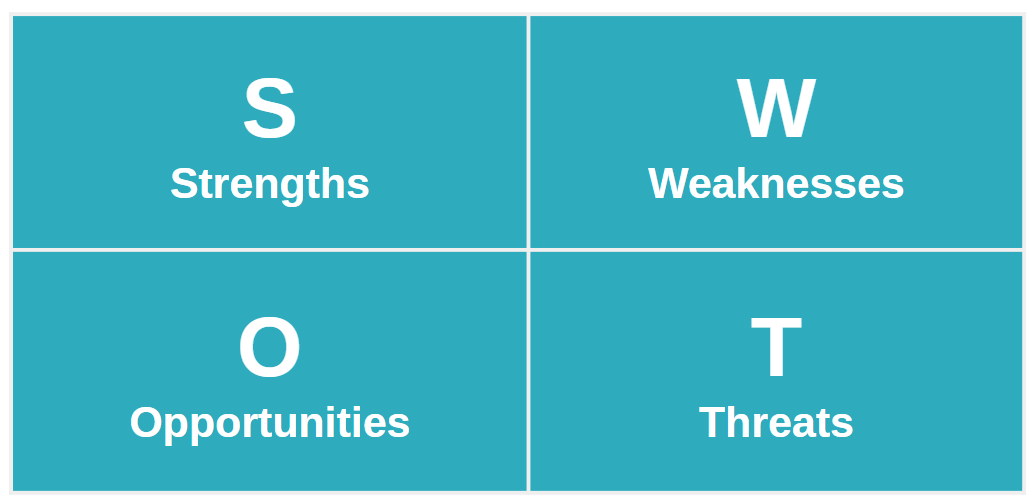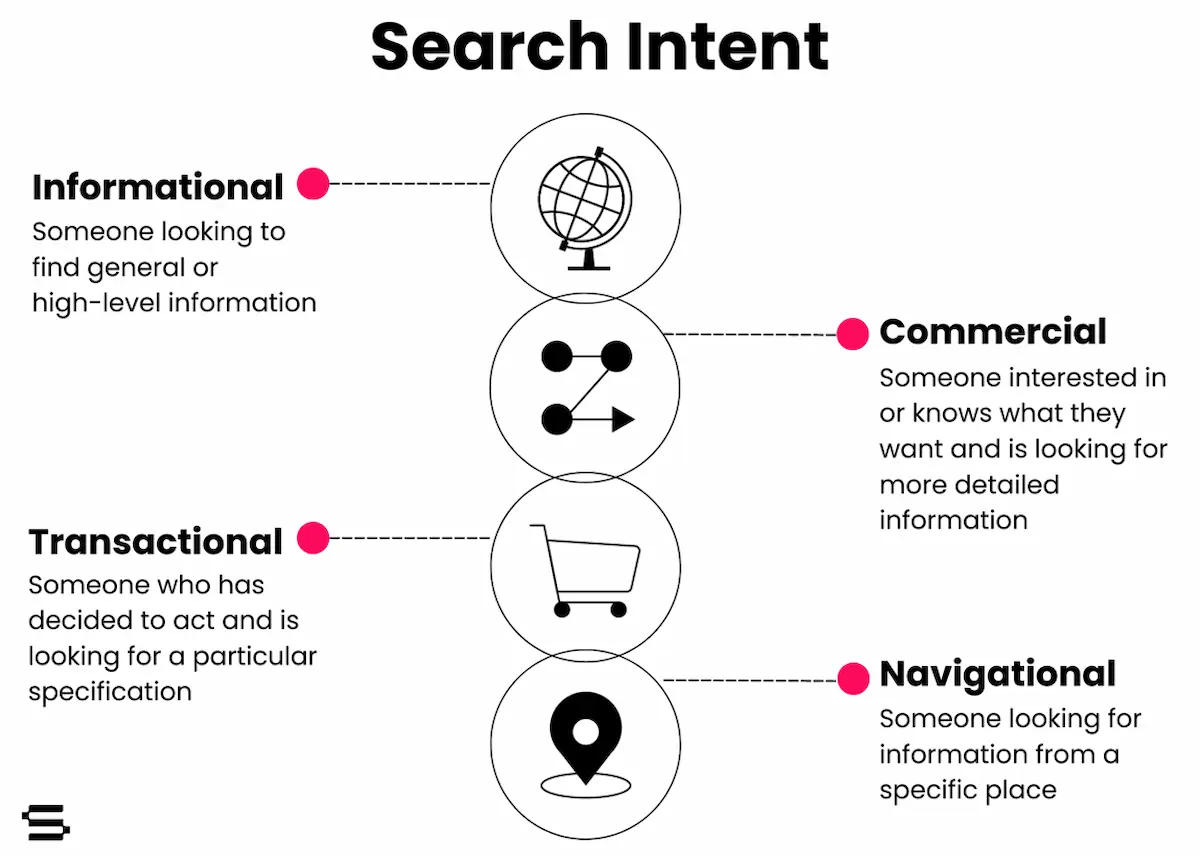Search Engine Optimization (SEO) is something we all may have heard of, whether you work at an agency or in-house on a marketing team. SEO consists of many different facets of content, technical, user experience and authoritative strategies, but at the end of the day it all comes down to business and making our clients or business money.
So when it comes to SEO, where do you start? A SWOT analysis, or Strengths, Weaknesses, Opportunities and Threats assessment is a great tool to get you started. Today, I’ll walk you through how to create a SWOT analysis for SEO and provide a template to get you started right away.
SWOT: Strengths, Weaknesses, Opportunities, Threats
A standard SWOT analysis can be used for any type of assessment, but today we’ll focus on how to use a SWOT analysis for SEO. The SWOT is comprised of 4 quadrants:
- Strengths
- Weaknesses
- Opportunities
- Threats
Strengths and Weaknesses typically arise from internal resources like business operations, while Opportunities and Threats stem from external factors, like your audience or a competitor.

Questions to Consider for an SEO SWOT Analysis
When creating your SEO SWOT analysis, there’s several questions for each quadrant you’ll want to consider. These questions become your starting point for your SWOT, and after completing, you should have a clear direction on where you need to focus first:
Strengths - internal factor
Consider what you are already doing well
- What keywords do I rank in the top 20 for?
- What percentage of branded vs. non-branded keywords are in the top 20?
- What is my site’s mobile load time? (potential to be a weakness)
- What are my top 10 revenue-driving or lead-driving landing pages?
- What are my top 10 traffic-driving landing pages?
- What “secret sauce” or offering do I have for my customers?
- What has worked well for my SEO in the past?
Weaknesses - internal factor
Consider where you may be missing the mark or falling short
- What areas of my site need improvement? (mobile, technical, content)
- What are my competitors doing that I am not?
- What keywords are ranking on page 3 or farther back? (little to no visibility)
- What percentage of those keywords are branded?
- What landing pages are driving little to no traffic?
- What landing pages are driving little to no revenue or leads?
- Is our team set up for SEO success? (team skill set, resources)
- What is my SEO & marketing budget?
Opportunities - external factor
Consider your strengths and weaknesses, where can you continue building and where could you improve?
- What does my audience need? What are their potential pain points when seeking a solution online?
- What do I want my audience to do once they reach my website?
- How does my website user journey flow?
- How clear is the path for new customers coming to my site to find what they need?
- What new products or services could we explore offering?
- Which content do I have existing that could be better optimized for my audience?
- Which strengths can we continue to capitalize on in the market?
- Which weaknesses should we dedicate more resources towards?
Threats - external factor
Consider again your weaknesses, and stack those against the competition
- What are my business competitors doing well?
- What are my search competitors doing well?
- What gaps exist between my site and the top business or search competitor sites?
- How rapidly is the gap growing between my site and the top business or search competitor sites?
- How often are new competitors entering the market?
- What factors in my industry are changing or expected to change?
- What search engine factors are changing or expected to change?
Using Your SEO SWOT to Create an Action Plan
Once you complete your SWOT analysis, it should be clear where you need to get started. Is your list of weaknesses far greater than your strengths? Are new competitors entering the market more frequently than in years past? The biggest thing to remember is that you won’t be able to tackle everything in your SWOT in just a few weeks or even months. SEO is a long-term play, and planning out a realistic, 12-18+ month plan is recommended. Here’s a few more considerations for your action plan:
- Is your team & resources stacked enough to get started?
- Do you need to hire new team members or consult an agency?
- Does your team need more training prior to getting started?
- Assign 1-2 resources per quadrant on the SWOT, and consider difficulty, time and resources needed to begin prioritizing tasks
- Update your SWOT once every quarter to begin monitoring your success and progress



